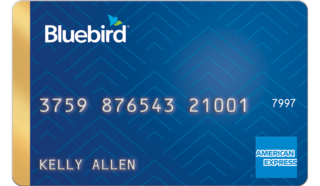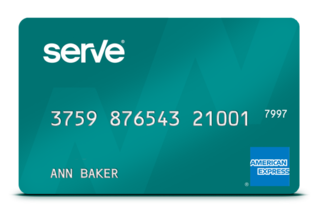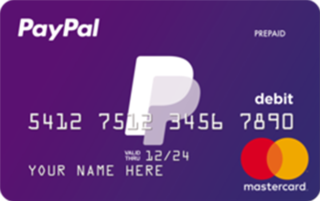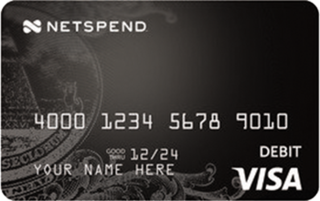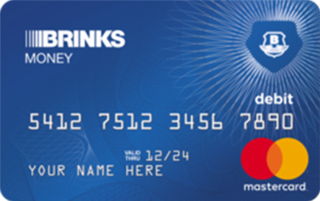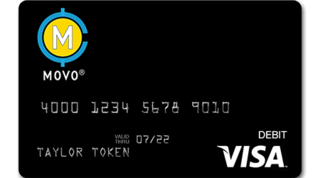7 Best Prepaid Debit Cards

According to latest numbers by the Federal Deposit Insurance Corporation, about 14.1% of the population in the United States is under-banked. This means that millions of people may have difficulty with simple financial processes like cashing paychecks, making online purchases, or even ordering delivery.
That’s where prepaid debit cards come in. Often misunderstood as credit cards for bad credit, prepaid debit cards are more like checking accounts for people without banking services. They offer a way for under-banked consumers to use a card they preload with funds for purchases. But they’re not all created equal, so it’s vital that you compare your options before you sign up for one.
Our Top Picks for Best Prepaid Debit Cards
- BlueBird by American Express - Best overall
- American Express Serve Free Reloads Prepaid Card - Best for reloads
- PayPal Prepaid Mastercard - Best for cash back
- Netspend Visa Prepaid Card - Best for direct deposit
- FamZoo Prepaid Card - Best for parents
- Brinks Money Prepaid Mastercard - Best mobile app
- Movo Virtual Prepaid Visa - Best virtual card
*Rates and APYs are subject to change. All information provided here is accurate as of May 19, 2023.
Best Prepaid Debit Cards Reviews
Whether you’re looking for prepaid debit cards with no fees, options that make direct depository easy, or even cards that offer cashback rewards, there's a prepaid debit card option for you. Here’s a list of the best prepaid debit cards on the market today:
- No monthly fee or in-network ATM fees
- Free to load at Walmart
- Free online bill pay
- $2.50 ATM fee for out-of-network ATMs
- $2,500 daily money transfer limit
- Fees are between $4 and $16 for money transfers
American Express is one of the most trusted financial institutions in the market today. It shouldn’t be surprising to find the BlueBird by American Express at the top of our list of prepaid debit cards.
The card allows you to avoid many of the fees that come with most prepaid cards. For example, you can take out cash for free through a widespread network of ATMs, access your paycheck up to two days early with direct deposit, and add cash for free at any Walmart checkout or Money Center. And the BlueBird card doesn’t have a monthly fee. Although the card’s fee structure is competitive, you won’t give up services.
- Free reloads at 45,000 locations
- Bank-level security and fraud protection
- Set aside money for goals and emergencies without additional fees
- $1.00 fee per transaction
- $2.25 fee to access cash
- $3.95 inactivity fee when you don't use your card for 90 days
There’s no such thing as a completely free prepaid debit card, but the American Express Serve Free Reloads prepaid card is as close as it gets. American Express lets you quickly reload the card with cash for free at more than 45,000 retail locations.
It also comes with simple online bill pay, though you will have to pay a $1.00 fee for each bill. Other fees to consider include a $1.00 fee for signature or pin purchases and a $2.25 cash withdrawal fee whether you get cash at an ATM or over the counter.
- Earn cash back
- Manage your account on the mobile app
- Get a $20 referral bonus
- $4.95 monthly fee
- You must have a PayPal account to access all features
- $1.95 ATM transaction fee
While cashback perks aren’t commonplace on prepaid debit cards, you’re in luck with the PayPal Prepaid Mastercard. The company offers cash back on purchases — up to 3% on PayPal purchases and 2% on all others. And PayPal offers a $20 referral bonus. Finally, the card comes with a mobile app that makes it easy to manage your account on the go.
There are a few drawbacks, though. First, you’ll have to pay a $4.95 monthly service fee. Moreover, you won’t have access to the full features of the card unless you open a PayPal account. You’ll also have to pay a $1.95 fee every time you access cash at an ATM.
- Free direct deposits
- 6% APY on optional savings
- Intuitive mobile app
- $1.95 purchase fee
- $2.95 ATM fee
- $5.95 monthly inactivity fee
If you plan on using prepaid debit cards for direct deposit, NetSpend prepaid debit cards are the way to go. You can get your paycheck up to two days faster when you have your employer deposit your money directly to your NetSpend Visa Prepaid Card.
Beyond direct deposits, there are plenty of other reasons to consider the card when you dig into its details. NetSpend offers cashback on qualifying purchases, and an optional savings account. Plus, you can easily manage your money on the go with the NetSpend mobile app.
There is a downside, though. The fees on the card are quite high. You’ll pay $1.95 per purchase, $2.95 per ATM withdrawal, and $3.95 every time you load cash onto the card. There’s also a $5.95 monthly inactivity fee if you don’t use your card for 90 days.
- Teach children about money
- Incentivizes good behavior, chores, and grades
- Block access to the account when necessary
- Monthly, every six months, annual, or bi-annual fees
- No ATM network
- Outdated app design
It’s important to start financial education at an early age, so it’s not surprising to see many parents looking for prepaid debit cards for their kids. The FamZoo prepaid card is the best one on the market. It gives parents a way to incentivize good behavior and grades while also allowing them to track all the transactions their children make. Moreover, parents can use the mobile app to restrict spending on the card at any time.
Perhaps most importantly, parents can set up sub-accounts to show their children how to manage their money properly. This includes accounts for spending, saving, investing, and even making charitable donations. The fees are relatively inexpensive. Parents pay $5.99 per month, $25.99 for six months, $39.99 annually, or $59.99 every other year. There are no additional fees to be concerned with.
There are a few drawbacks: parents have to agree to pay fees, there’s no ATM network to speak of, and the app is pretty dated. Nonetheless, if you’re looking for a spending account for your kids, you’re in good shape with the FamZoo card.
- Intuitive mobile banking app
- Cashback rewards
- Instantly load with checks
- Transaction fees if you don't pay a monthly fee
- High cost to access cash
- Monthly fees can be as high as $9.95
If you’re looking for a prepaid debit card coupled with an intuitive mobile banking app, the Brinks Money Prepaid Mastercard is the way to go. The company’s app offers most of the features you’d find on traditional mobile banking apps. You can even deposit checks into your prepaid account from the app. You’ll earn cash back on qualifying purchases and get paid up to two days faster with direct deposit.
There is one downside: The fees can be hard to deal with. The card has several options, with monthly fees ranging from $0 to $9.95. If you don’t pay a monthly fee, you’ll have to pay $1.50 each time you make a purchase. Regardless of your plan, you’ll have to pay $2.50 to access your money at an ATM or $3.00 to get cash over the counter.
- Create multiple virtual cards
- Spend at the point of sale using the mobile app
- 24/7 digital account management
- $2 ATM fee
- $4.95 inactivity fee
- $15 declined ACH fee
As technological innovation continues, consumer spending habits are changing. Virtual prepaid debit cards are becoming more and more popular. The Movo Virtual Prepaid Visa is a compelling option if you want to go virtual. With a Movo account, you can create multiple virtual cards. This makes it easy to track transactions and cancel subscriptions after the free trial.
The company’s mobile app is also intuitive. You can even use the app like a credit card at the point of sale. It also has most features you’d expect from a traditional mobile banking app.
However, Movo accounts aren’t free. Although there’s no monthly fee, you will have to pay $2.95 if you want a physical card. You’ll also pay $2 per withdrawal at ATMs and $15 for ACH declines. And there’s a $4.94 monthly inactivity fee if you don’t use your card for 90 days or longer.
Other Prepaid Debit Cards We Considered
Although the cards mentioned above are the best in their respective categories, they’re far from your only options. Here are a few honorable mentions that didn’t quite make our list:
Greenlight Prepaid Mastercard
- Teach your children about money
- Connect chores to financial rewards
- The monthly fee is the only fee you pay
- Monthly fees range from $4.99 to $9.98
- It's difficult for multiple parents to manage accounts
- The card's best features are only available when you pay the highest monthly fee
The Greenlight Prepaid Mastercard is a compelling option for parents who want to teach their children about money. Parents can tie chores and grades to financial rewards, and the fees are reasonable. You’ll only pay a monthly fee between $4.99 and $9.98.
Walmart MoneyCard
- Earn up to $75 in bonus cash per year
- Free cash withdrawals at Walmart
- Free direct deposit with payday between two and four days early
- $2.50 fee to access cash over the counter or at an ATM
- Reload fees range from $3.00 to $5.95
- You must load $1,000 or more a month to avoid monthly fees
Walmart prepaid debit cards make it convenient to manage your spending account with low load fees and free cash withdrawals at Walmart locations. Direct deposit is also free, but you'll have to pay a monthly fee if you don’t deposit $1,000 or more.
Fifth Third Access 360 Prepaid Card
- No load fees
- Large ATM network
- The $4 monthly fee is waived when you deposit $500 or more per month
- Must visit a Fifth Third branch to get the card
- $4 monthly maintenance fee
- High foreign transaction fees
The Fifth Third Access 360 prepaid card is a compelling option for under-banked consumers who want a traditional bank-like experience. You won’t pay a dime to load money onto the card, and you can access that money at an extensive ATM network.
Prepaid Debit Cards Guide
Some of the information here may be difficult to understand if you haven’t had experience with prepaid debit cards. Here’s a guide to help you learn about prepaid cards and why you might want one.
What is a prepaid debit card?
Prepaid debit cards look similar to credit cards or debit cards from a bank. They have a card network emblem, can be used anywhere that takes credit cards, and many have account and routing numbers that allow you to use them for direct deposits.
However, unlike a credit card which allows you to spend up to a certain credit limit, a prepaid debit card will only let you spend however much money you have loaded into the account. This makes it impossible to overdraft the account, which would lead to additional fees in a traditional checking, savings, or credit card account.
How do prepaid debit cards work?
The process of using a prepaid debit card is simple. Follow these steps:
- Open a New Account. Start by opening a new account with a prepaid debit card provider.
- Fund Your Account. Also called loading, funding your account is adding money to it.
- Spend. Next, use your prepaid debit card to purchase products and services at the point of sale.
Keep in mind that prepaid debit cards also typically charge monthly maintenance, transaction, load, and ATM fees. It’s important to read the fee schedule before you sign up for any prepaid debit card.
The benefits of prepaid debit cards
Prepaid debit cards have become a popular option among under-banked consumers. That’s because they give users the convenience of being able to cash and use their paychecks as if they were using a checking account.
However, that convenience isn’t the only reason you might consider opening a prepaid debit card of your own. The most significant benefits of using these financial accounts are detailed below.
Easy to obtain
Prepaid debit cards are far easier to get than a traditional bank account. To open a traditional bank account, you’ll have to meet several requirements and pass a ChexSystems score review. If you’ve closed checking accounts with money owed in the past or have been suspected of fraud, it may be nearly impossible to access a traditional account. However, there are no ChexSystems reviews when you sign up for a prepaid debit card, making these accounts far easier to obtain.
No credit check
Prepaid debit cards are easier to get your hands on than credit cards or other personal loans. That’s because there’s no credit check to contend with. Lenders know that the money you spend is provided through your deposits. Moreover, prepaid debit cards block consumers from over-drafting their accounts. Since there’s no risk on the financial institution’s side of the coin, there’s no reason to require a credit check.
Prevents overspending
You can’t overdraft when you use a prepaid debit card. That means these cards are compelling options to help you keep your spending on track.
One way to use these cards to prevent overspending is to only load your prepaid card with the amount of money you intend to spend over a predetermined period. For example, if you want to keep your spending to $150 per week or less, you can just load $150 per week on your card. Once the money runs out, the card declines, preventing you from spending above and beyond your budget.
The drawbacks of prepaid debit cards
There are plenty of reasons to consider opening a prepaid debit card account, but these cards aren’t perfect. They typically come with higher fees than traditional checking accounts, taking a significant chunk of change from the money you deposited.
Unfortunately, that’s not the only drawback to prepaid debit cards. Some of the biggest disadvantages to consider before you sign up for one include:
Won't improve credit history
Prepaid debit cards often come up in searches for terms like “ How to build credit.” This leads to the false idea that these financial accounts can help you build your credit scores. The truth is that prepaid debit cards aren’t designed to help you build your credit. Since you’re spending your own money in a checking-account style system, these accounts do nothing to show how you’ll perform when it comes to paying back loans or lines of credit.
The problem with myths like these is that many people think that by using their prepaid cards, they’re building their credit, sometimes setting consumers back significant amounts of time in their credit journey. If they were aware of the situation, they might choose financial accounts actually designed to help improve credit scores.
Limited fraud protection
Prepaid debit cards rarely offer the level of fraud protection you can expect when you work with a traditional bank or even a credit card. That means that if someone gets your information and spends your money, you could have difficulty getting it back. The good news is that almost all prepaid debit cards are FDIC-insured, although some options don’t even provide this level of protection.
Hidden fees are common
Some of these cards are advertised as no monthly fee prepaid debit cards, but that doesn’t mean there are no fees to consider. The truth is that the vast majority of prepaid debit cards come with high fees. Some even sneak in hidden fees, like a $1.50 charge every time you swipe your card.
Where to get prepaid debit cards
There are tons of prepaid credit cards to choose from, which aren’t very hard to get. You can get your hands on one of these financial accounts in three common places.
Retail locations
Retail stores like Walmart, Target, Dollar General and Winn Dixie typically have a display featuring a mix of gift cards and prepaid debit cards near their registers. If you’d like to purchase a prepaid card in person, you can grab one from one of these displays and load it at the cash register.
Remember that retailers are in business to make money, so they’re only going to sell the prepaid cards they believe they can make the most money off of, and your options may be limited.
Online
If you want the most options possible as you shop for a prepaid debit card, comparing your options online is the way to go. With some exceptions, you can get your hands on prepaid cards from most brands on the web, like the Fifth Third Access 360 prepaid card. When you shop online, it’s easy to compare your options, get a detailed understanding of fees, and decide which card is best for your unique situation.
Some banks
Some banks offer prepaid debit cards in their branch locations. The Fifth Third Access 360 prepaid card is a perfect example, as consumers must go to the branch to get the card. However, Fifth Third isn’t the only bank that offers in-branch prepaid debit cards. Consider calling the bank branch closest to you to see if they offer prepaid account options.
Prepaid cards vs debit cards
Prepaid cards and debit cards may seem similar, but they’re very different offerings. Debit cards are attached to traditional checking accounts. In most cases, these accounts make it possible to bank completely free as long as you receive a direct deposit or use your debit card several times per month.
Prepaid cards are designed for consumers that have difficulty getting their hands on a traditional bank account. The tradeoff is that these cards typically come with relatively high and often unavoidable fees.
Best Prepaid Debit Cards FAQ
What banks offer prepaid debit cards?
- Fifth Third Bank
- Wells Fargo
- Chase
- American Express
How do you reload prepaid debit cards?
In some cases, banks that offer prepaid cards will also offer a mobile app that makes it easy to load the card with a check. You can also ask your employer to deposit your paycheck directly into most prepaid accounts.
Which prepaid debit cards can be used internationally?
If you plan on using your prepaid card internationally, you'll want to find a card with minimal fees.
How We Chose the Best Prepaid Debit Cards
Reloadable prepaid debit cards are all different, and choosing the best of the best can be a tall order. Here’s how we did it.
Fees
Fees are the first thing we looked at as we curated this list. That’s because the more you pay in fees to have the account, the less of your money you get to spend. In particular, our core focus was on:
- Monthly Service Fees. Although some exceptions exist, most prepaid cards come with a monthly service charge. We paid close attention to these monthly fees to ensure you get the best deal.
- Transaction Surcharge. Some prepaid debit cards charge exorbitant transaction fees. We didn’t include any of those options on this list.
- ATM Withdrawal Fees. Almost all prepaid cards charge a fee to access your cash at an ATM. We made sure those fees weren’t too high.
We also looked into other fees, like load and foreign transaction fees, when determining which cards were the best.
Customer support
When you have questions about your money, it’s important that someone is ready and willing to answer those questions. We looked into customer reviews to determine the quality of support cardholders received. The prepaid card didn’t make the list if customer support wasn't top-notch.
Features
Some prepaid debit cards have features beyond the basic use of a card for purchases. In particular, we looked for cards that came with features like:
- Direct Deposit. Direct deposits make it easy and efficient to access your paycheck. All prepaid debit card accounts on this list offer direct deposit options.
- Rewards. Most prepaid debit cards don’t offer rewards programs, but a few do. Those that do earn a few extra brownie points.
- Mobile App. The world manages its money on the go, and you should also be able to. We looked for options with intuitive mobile apps.
- Children. Finally, we paid close attention to options that make it easy to teach your kids about money.
Limits and minimum balance
Most prepaid cards come with money transfer and withdrawal limits and minimum balance requirements. We made sure these limits and requirements were reasonable, considering the audience likely to take advantage of these types of accounts.
User reviews
Finally, we know that if most reviewers had a positive opinion about a prepaid debit card, chances are you’ll also have a positive experience. We combed through several user reviews for each card we considered for this list. Cards didn't make the list if we found any consistent issues across multiple reviews. Those who did make our list were at the center of several positive reviews emphasizing cost, features, and customer support.
Summary of Best Prepaid Debit Cards
- BlueBird by American Express - Best overall
- American Express Serve Free Reloads Prepaid Card - Best for reloads
- PayPal Prepaid Mastercard - Best for cash back
- Netspend Visa Prepaid Card - Best for direct deposit
- FamZoo Prepaid Card - Best for parents
- Brinks Money Prepaid Mastercard - Best mobile app
- Movo Virtual Prepaid Visa - Best virtual card

